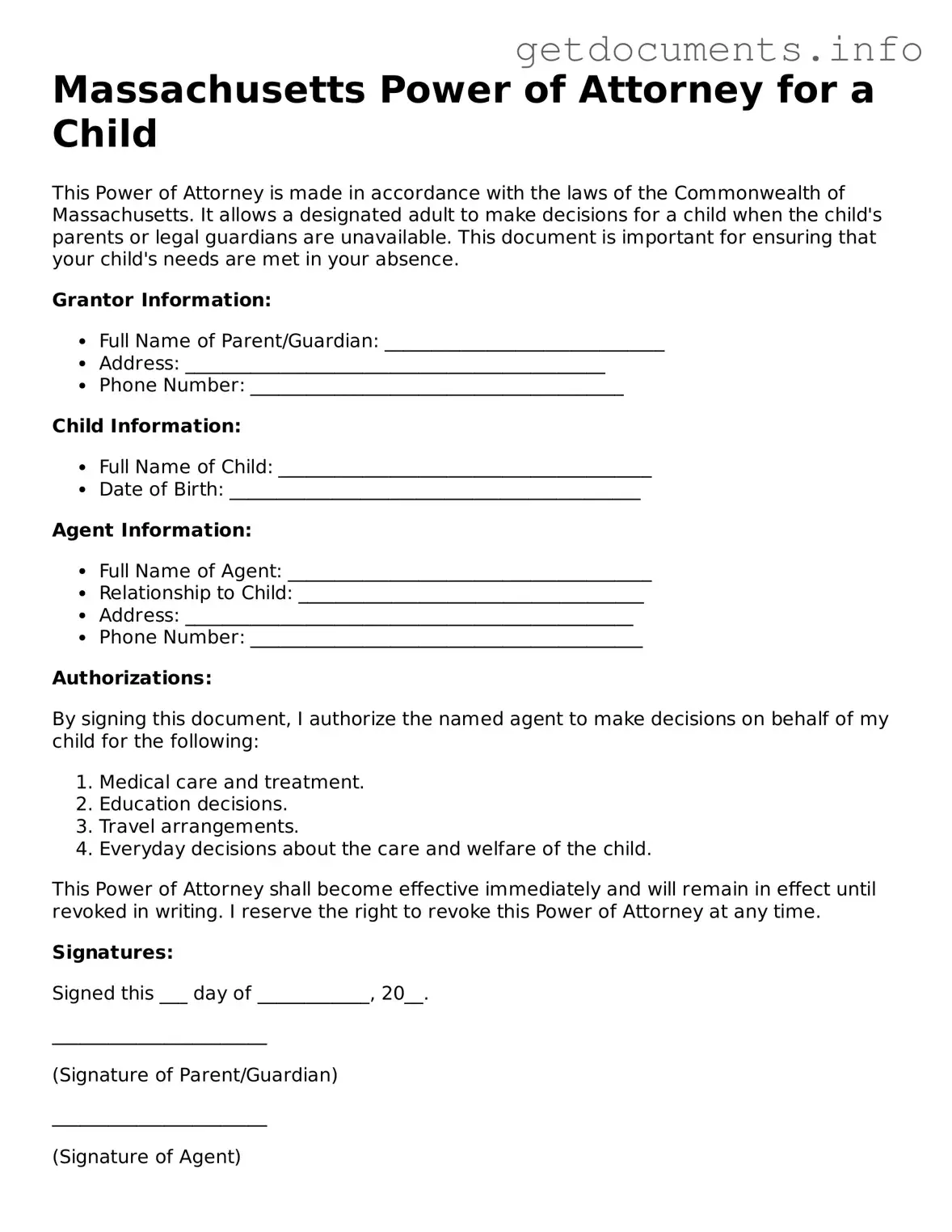Free Power of Attorney for a Child Template for Massachusetts
The Massachusetts Power of Attorney for a Child form is a legal document that allows a parent or guardian to designate another adult to make decisions on behalf of their child. This arrangement can be crucial in situations where the parent is unavailable due to travel, illness, or other circumstances. Understanding how to properly fill out this form is essential for ensuring that your child's needs are met when you cannot be there.
Ready to take the next step? Fill out the form by clicking the button below.
Access Power of Attorney for a Child Editor

Free Power of Attorney for a Child Template for Massachusetts
Access Power of Attorney for a Child Editor
Got places to be? Complete the form fast
Fill out Power of Attorney for a Child online and avoid printing or scanning.
Access Power of Attorney for a Child Editor
or
⇩ PDF File
